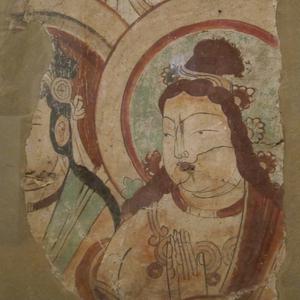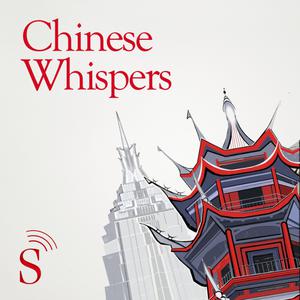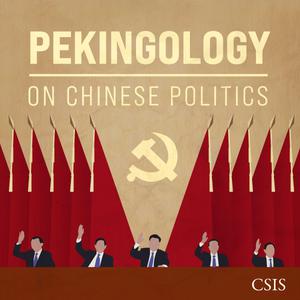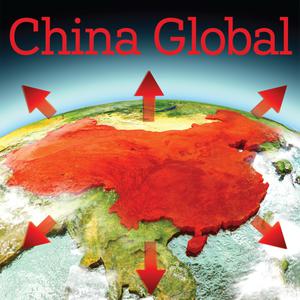
Barbarians at the Gate
Barbarians at the Gate
A semi-serious deep dive into Chinese history and culture broadcast from Beijing and hosted by Jeremiah Jenne and David Moser.
- 33 minutes 32 secondsShalama: An Epic Story of Family, Community, and Survival in Republican-era China
In this episode, we are thrilled to welcome Jean Hoffman Lewanda back to the podcast to discuss her new book, Shalama: My 96 Seasons in China, published by Earnshaw Books. Listeners may recall Jean's previous appearance, where she shared insights about her father, Paul Hoffman's memoir, Witness to History: From Vienna to Shanghai—A Memoir of Escape, Survival, and Resilience. That captivating memoir details how Paul fled Vienna at the age of 18 to escape the rise of Nazism, arrived in Shanghai in 1938, and became part of the historic wave of Jewish refugees who found a safe haven in China during World War II.
Jean's new book enriches this family saga by recounting events from her mother Shalama's perspective but presented as historical fiction. Drawing on firsthand accounts, including her mother's, Jean tells the story in Shalama's voice, tracing the family's journey from Harbin to Shanghai during the war-torn decades of the mid-20th century. The book interweaves the family's history with major historical events, including the Sungari River flood of 1932, the Japanese occupation, and the Communist takeover of China.
Links:
Shanghai Jewish Refugees Museum
Historic Shanghai (Host of the Shanghai Book Club)
Dan Ben-Canaan, Tombstone Histories: Tales of Jewish Life in Harbin
Dara Horn, People Love Dead Jews: Reports from a Haunted Present
Dara Horn, "Cities of Ice: A dispatch from frozen Harbin, where Jews once flourished—and melted away," Tablet, April 19, 2019
15 January 2025, 10:30 am - 37 minutes 45 secondsWhere have all the American China Experts Gone?
In this episode, we invite Rory Truex, an associate professor at Princeton University, to discuss a recurring issue on the podcast: the plight of the US-China academic exchange and the urgent need to attract more American scholars to do research in China.
Despite the recent revival of several American academic programs in China, the post-COVID number of US students in the PRC is still woefully inadequate. Professor Truex gives an overview of some reasons for this deterioration of interest by American scholars and the challenges of doing meaningful research in the current Chinese academic environment.
We also discuss predictions about the new Trump administration’s possible effects on US-China relations, the implications for government support and funding of educational exchange programs, and the perception of Chinese and American exchange students as security risks. Rory also describes his path of development as a China scholar during the so-called "Golden Age" of the early 2000s in China, and the current difficulties of carrying out unfettered academic research in a new era of tightening restrictions.
Rory Truex is Associate Professor of Politics and International Affairs at Princeton University. His research focuses on Chinese politics and authoritarian systems. He regularly contributes to major publications such as The Atlantic, Washington Post, and New York Times.
Mentioned on the podcast:
“Where have all the American China experts gone?"
Washington Post, January 3, 2024
23 December 2024, 6:57 am - 41 minutes 34 secondsLaws of the Land: Feng Shui in Chinese History
In this episode, hosts Jeremiah Jenne and David Moser speak with MIT professor Tristan Brown about his award-winning book Laws of the Land: Feng Shui and the State in Qing Dynasty China. Brown reveals how Feng Shui was far more than just the art of furniture arrangement or grave placement - it was a sophisticated system of environmental management and social control in imperial China.
Drawing from rare county archives in Sichuan province, Brown shows how Feng Shui served multiple functions: regulating urban development, managing environmental resources, and mediating social conflicts. Through fascinating examples, he explains how both elite families and common people used Feng Shui in legal disputes, from establishing ancestral claims through strategic grave placement to fighting against disruptive mining operations.
Brown's book challenges common Western misconceptions about Feng Shui, presenting it instead as a complex system of environmental regulation and social organization that shaped Chinese society for centuries. It's a fascinating look at how cosmological beliefs, environmental management, and state power intersected in imperial China.
Topics Covered
- The Power of Archives: Using rare Qing dynasty court records from Sichuan to uncover how Feng Shui shaped legal and social life
- Graves and Identity: How burial sites and ancient trees established claims to belonging
- Environmental Management: Feng Shui as an early system of zoning and environmental protection
- Foreign Architecture: The clash between traditional Chinese urban planning and Western religious buildings
Notable Quotes
"Legal cases involving feng shui could be completely nakedly self-interested... or it could be something that's really talking about environmental ethics. It hugs that whole spectrum, which is why it's real, which is why the state had to engage with it." — Tristan Brown on Feng Shui's dual nature"It's not the number of relatives you have living there. It's the number of relatives you have in the local graveyard that ties you to a place." — On the importance of graves in establishing local identity"The thing about gravesites... what is the element of the landscape that you can't lie about? The trees. Old trees are legitimately old. Everyone knows it." — On how families proved their ancestral claimsBrown reveals how Feng Shui served as more than just spiritual practice – it was a sophisticated system of environmental management and social control. From regulating building heights to controlling industrial development, Feng Shui provided the legal framework for managing space in imperial China.
The discussion illuminates how different groups engaged with these practices: elite families used them to establish ancestral claims, poor families adapted them for survival, and foreign religious groups either successfully navigated them (like Sufi Muslims) or created conflict by ignoring them (like Christian missionaries).
26 November 2024, 2:25 pm - 34 minutes 30 secondsWhat can the end of the Ming Dynasty tell us about the election of Donald Trump and what comes next
Last week’s election of Donald Trump to a second term as U.S. President disappointed half of the American electorate and much of the world (outside the Kremlin). To help Jeremiah and David process what’s next, they’re joined by Brendan O’Kane— writer, translator, expert in the literature of the late Ming Dynasty, and a Pennsylvania voter.
Brendan explores the works of Zhang Dai (張岱 1597-1634), the Jin Ping Mei 金瓶梅, and other literary examples from the twilight of the Ming Dynasty (1368-1644). What was it like to witness the end of an era and the collapse of an entire state? Was the Obama era an American "restoration" (中興)? What do people do when the political order is overturned and the dynasty falls? We delve into Chinese history and literature, searching for insights to ease the pain and make sense of what lies ahead.
David also shares reactions from his students in Beijing on the election results—as well as rumors of a surprising (and unsettling) prank their peers in the U.S. may have pulled at campus polling stations.
The Southern Ming by Lynn Struve, 1984
The Great Enterprise: The Manchu Reconstruction of Imperial Order in Seventeenth-Century China by Frederic Wakeman, 1986
Voices from the Ming-Qing Cataclysm: China in the Tiger's Jaws. Edited and translated by Lynn A. Struve, 1993
12 November 2024, 8:44 am - 44 minutes 1 secondHistorical Battles: Rewriting China's Past to Shape the Future
"We can overestimate and underestimate how much things changed when Xi Jinping took power, but the intensity of concern over historical narratives has definitely grown under his leadership." - Jeffrey Wasserstrom
In this episode, Jeremiah and David are joined by Jeffrey Wasserstrom, Chancellor's Professor of History at the University of California, Irvine, and a leading expert in modern Chinese history. We discuss the legacies of the Hong Kong protests, the rise of Xi Jinping's historical narrative control, and how academic engagement with China is evolving amidst growing geopolitical tensions.
Professor Wasserstrom delves into the shifts in how history is managed in China, particularly the tightening control under Xi Jinping’s regime. He elaborates on Xi’s new patriotic education law, which codifies the regime's control over historical narratives to align with national security. We also examine the challenges academics face when giving talks on sensitive topics and the growing restrictions on public discourse in Hong Kong since the imposition of the national security law.
Further Reading/Links:
- Jeffrey Wasserstrom, Vigil: Hong Kong on the Brink
- Maura Cunnigham and Jeffrey Wasserstrom, China in the 21st Century: What Everyone Needs to Know
- Follow Jeffrey Wasserstrom on Twitter @jwassers
16 October 2024, 6:06 am - 29 minutes 1 secondBack to School 2: The View from the EU
In this episode of Barbarian at the Gate, hosts Jeremiah Jenne and David Moser are joined by special guest Karlis Rokpelnis, China country representative for the European Union's Euraxess Research Mobility Initiative. Together, they delve into the evolving landscape of international education in China, discussing the factors influencing the decline in student exchanges and the varying approaches of American and European institutions. Karlis offers his unique perspective on the changes he's observed over the past decade, from a gradual decline in short-term exchanges to a rise in long-term study programs at top universities.
The conversation also explores the differing cultural and political dynamics between the U.S. and Europe when it comes to studying in China, including the impact of xenophobia, political rhetoric, and international relations on academic exchanges. The trio reflects on what motivates students to come to China, how they engage with their studies, and the future of China-related scholarship. With a blend of humor and insight, this episode captures the complexities of navigating education and politics across borders, offering listeners a thoughtful and engaging look into the current state of studying China from abroad.
19 September 2024, 1:50 pm - 39 minutes 37 secondsBack to School?
As David at least gets set for another semester, he and Jeremiah reconnect to catch up on a mix of timely topics from China and the US. They explore the declining number of Chinese students studying in the US and the cautious return of American students to China, offering insights and practical advice on how to introduce China to American students in nuanced ways. They discuss the difference between fostering an appreciation for Chinese culture and people versus endorsing government policies.
The conversation also delves into the current US presidential race and how it’s being portrayed on Chinese platforms like Weibo, focusing on reactions to Vice-Presidential candidate Tim Walz’s China ties. Finally, they wrap up with a lively discussion on Beijing’s North-South axis being added to UNESCO’s Intangible Cultural Heritage list, considering what it means for the city’s identity and global recognition.
27 August 2024, 9:48 am - 36 minutes 10 secondsEdge of Empire with author and journalist Edward Wong
In this episode, Edward Wong, diplomatic correspondent and former Beijing Bureau Chief for the New York Times, joins us to discuss his new book, Edge of Empire: A Family’s Reckoning with China. Edward’s father, Yook Kearn Wong, lived through the Japanese occupation and the Communist Revolution in China. Captivated by Mao’s vision of a powerful China, he served in the People’s Liberation Army during the Korean War and later served in Xinjiang. By 1962, disillusioned with the Communist Party, he made a daring escape to Hong Kong.
Wong’s book is one part a family memoir and one part a reflection of Edward's experiences in China both as a student and as a journalist. We discuss the legacies of empire, China’s frontiers, what the Qing Dynasty means for China today, and how memories of the past continue to be used and misused in the PRC.
22 July 2024, 7:35 pm - 36 minutes 18 secondsThere and Back Again: Deng Xiaoping's Southern Tour and the Legacy of Reform and Opening in China
In this episode, we welcome back a friend of the podcast, Jonathan Chatwin, to discuss his new book, The Southern Tour: Deng Xiaoping and the Fight for China's Future.
Since the Emperor Kangxi made his southern tour in 1684, many emperors and Chinese leaders have undertaken similar inspection tours, including Mao, Deng, and Xi Jinping. Deng’s southern tour took place in the backdrop of contentious debates about his radical restructuring of the economy in the Reform era. Jonathan describes how Deng used the tour to reinvigorate his market reforms amidst the turmoil after 1989 and the difficulties with squaring the tenets of socialism with the new agenda of wealth creation.
Our conversation also covers Deng’s legacy, Xi Jinping’s attempt to downplay Deng’s role in the historic reforms, and the obstacles of publishing a China book in the current Sino-skeptic environment.
Publisher’s link for The Southern Tour: Deng Xiaoping and the Fight for China's Future
Our previous episode with Dr. Chatwin discussed his book, Long Peace Street: A Walk in Modern China
Deng-zilla Poster! from Chineseposters.net
27 June 2024, 8:28 am - 39 minutes 58 secondsFrom Firefly to Fox News: The Evolution of "Chimerican" Media
This episode features a lively conversation with Fan Yang, Professor of Media and Communication Studies at the University of Maryland Baltimore County, about her new book Disorienting Politics: Chimerican Media and Transpacific Entanglements.
The term “Chimerica” is a portmanteau word, blending “China” and “America.” The neologism denotes the economic, political, and cultural entanglements of the two countries. Fan Yang uses the concept of “Chimerican media” to explore how the conflicts and tensions between the world’s two superpowers are played out in movies, television series, journalism, and media products that are often viewed by people in both countries.
Drawing upon media examples such as House of Cards, The Martian, and Firefly, Prof. Yang shows how the tendency of American media to portray the Chinese state as a racialized “other” tends to complicate the two countries' increasing geopolitical entanglement. The conversation also touches on the reconceptualized Netflix version of The Three Body Problem and the complex reactions on both sides of the Pacific to the depictions of Cultural Revolution violence in the series.
5 June 2024, 9:12 am - 33 minutes 50 secondsWhat happens after a Barbarian walks away from the Gate?
This episode represents a new direction for the podcast, recorded on the eve of Jeremiah’s move to a new home base in Geneva. We start with a retrospective snapshot of the podcast’s beginnings – with many episodes recorded under the backdrop of COVID-19 – and then segue into our perennial concern, the plight of academic exchange in China, for which our consensus was “cautious optimism," while accepting an unsatisfying "new normal.” We sign off with future plans and ideas for the next phase of Barbarians at the Gate.
17 April 2024, 1:17 pm - More Episodes? Get the App
Your feedback is valuable to us. Should you encounter any bugs, glitches, lack of functionality or other problems, please email us on [email protected] or join Moon.FM Telegram Group where you can talk directly to the dev team who are happy to answer any queries.
 Sinica Podcast
Sinica Podcast
 ChinaTalk
ChinaTalk
 Chinese Whispers
Chinese Whispers
 Pekingology
Pekingology
 China Global
China Global
 Drum Tower
Drum Tower